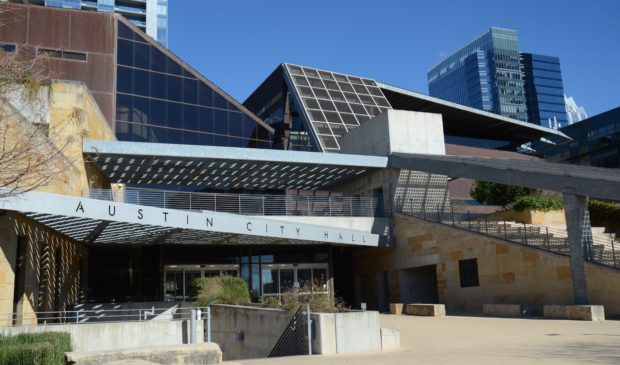Three consultants enlisted to fix city’s arts, music grant programs
Tuesday, November 7, 2023 by
Chad Swiatecki Amid criticism over problems with the rollout of new grant programs for artists and musicians, the Economic Development Department has hired three outside consultants to study and recommend how to improve their performance.
A memo released last week by Sylnovia Holt-Rabb, director of EDD, detailed plans for improving the experience for applicants to the new programs, following complaints of slow payouts, poor communication and an application process that was difficult to navigate. In recent weeks, the Live Music Fund and the Elevate grant program for artists have come under fire before the Music Commission and Arts Commission, with Holt-Rabb vowing to correct those problems before the next round of funding opens.
The department has hired technology consulting firm Gartner to improve the application process and evaluate EDD’s overall technology needs. Two Austin-based groups have also been hired: Snap Management will work on organizational development within EDD, and Measure Austin will study the impact of the grant programs in the community.
Gartner is expected to complete its work by the end of this year, while Measure Austin is expected to finish its community analysis by this spring. The organizational analysis by Snap Management doesn’t have a firm timeline yet but the memo said it is “targeting to wrap up all recommendations also by Spring 2024.”
The memo did not include details on the cost for the three consultants. In total, the Live Music Fund and three arts grant programs – Thrive, Elevate and Nexus – have $15 million in funding from the city’s portion of Hotel Occupancy Tax revenue.
While explaining the multiyear process to create the Live Music Fund and revamp Cultural Arts grant programs with an equity-first model, the memo acknowledges the complaints that have resulted from those changes. The problems identified were poor user experience with the application portal, inadequate Spanish-language support, an application process that was too long, unclear details on the applicant evaluation process, inefficient timing of the grant cycles, unclear eligibility guidelines, inconsistent expectations for recipient events or creative works, and poor communication from the Long Center for the Performing Arts, which was hired to handle some administrative steps in the grant process.
As criticisms of the programs have grown, the Long Center recently created an explainer web page that details the steps it does and does not control for the grant programs it has been hired for.
Over the past two months, recipients of grants from the Live Music Fund and Elevate programs have charged EDD with mishandling the process to such a degree that some events or projects were in danger of being canceled because of a lack of funding. The slow payment problem was compounded by a lack of communication from grant administrators on next steps once the expected payments were not made.
At a recent Arts Commission meeting, EDD staff said the delays were caused by a late amendment to the Long Center contract that was made by the city Purchasing Department. That contract change paused all work on the grants, though payments were eventually made for all recipients who had submitted the required paperwork and signed contracts.
In September, the advocacy group Austin Texas Musicians presented the Music Commission with findings of a survey of its members that showed widespread dissatisfaction with the Live Music Fund, which was authorized by City Council in 2019 but took nearly four years to launch.
Early responses to ATM’s survey included comments from applicants that the grant program seemed intended to benefit event and concert promoters rather than musicians hoping to receive assistance with securing live bookings. And other comments criticized the need for detailed financial plans or the level of funding available for recording projects or other nonevent applications.
The group was scheduled to give a more detailed presentation of its survey findings at Monday’s Music Commission meeting.
The Austin Monitor’s work is made possible by donations from the community. Though our reporting covers donors from time to time, we are careful to keep business and editorial efforts separate while maintaining transparency. A complete list of donors is available here, and our code of ethics is explained here.
You're a community leader
And we’re honored you look to us for serious, in-depth news. You know a strong community needs local and dedicated watchdog reporting. We’re here for you and that won’t change. Now will you take the powerful next step and support our nonprofit news organization?








